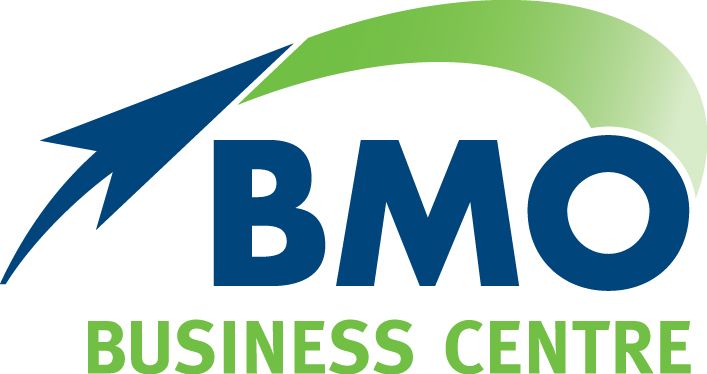Blog
BLOG

By Ryan Troe
•
14 May, 2024
Major tax cuts were the centrepiece of the Albanese government’s third Federal Budget, even though the changes have already been announced and legislated. Small businesses can breathe a sigh of relief, with the popular $20,000 instant asset write-off hanging on for another year and a valuable bill rebate on the way to help with the burden of high energy bills. Tax cuts for everyone From 1 July 2024, all 13.6 million Australian taxpayers will receive a tax cut, with the average taxpayer’s tax bill being $1,888 (or $36 a week) lower. Under the new rules, the lowest tax rate reduces from 19 per cent to 16 per cent, with the 32.5 per cent marginal tax rate reducing to 30 per cent for individuals earning between $45,001 and $135,000. The current 37 per cent marginal tax rate will be retained for people earning between $135,001 and $190,000, while the existing 45 per cent rate now applies to income earners with taxable incomes exceeding $190,000. Low-income earners (under $45,000 p.a.) are the biggest winners from the changes. A single taxpayer with a taxable income of $40,000 who pays $4,367 in tax in 2023 24, would have received no benefit from the original Stage 3 tax plan, but now receives a tax cut of $654. Boost for tax compliance On the revenue side, the Budget includes savings of $2.5 billion in tax receipt measures through a crackdown on the shadow economy, fraud, and tax avoidance. Taxpayers can expect the ATO to continue its recent tougher stance, with technology upgrades to enable better identification and blocking of suspicious activities in real-time and a new compliance taskforce focussed on recovering lost revenue and stopping fraudulent refunds. Foreign residents will pay an additional $600 million over the next three years due to strengthening of the capital gains tax rules applying to this group. Law change for old tax debts However, one controversial measure, labelled ‘robotax’ by the media, may be abandoned, according to the Budget papers. The ATO had been calling in historical tax debts, some accrued more than a decade ago, saying it had no choice under current laws. But the government now intends to change the tax law to give the ATO discretion about whether to collect the individual, small business, and not-for-profit debts. Instant asset write-off retained The deadline for the $20,000 instant asset write-off will be extended to 30 June 2025, allowing small businesses with annual turnovers of less than $10 million to immediately deduct eligible assets. In addition, $23.3 million will be spent boosting adoption of eInvoicing to help improve small business’ cash flow and productivity. Relieving energy bill pressure Direct relief for small business energy bills will come in the form of a $325 rebate, while there will also be new funding for reforms to help businesses find their best electricity contract. Assistance for smaller entities With trading conditions remaining difficult, small business will receive $641.4 million in new targeted support. This includes $10.8 million to extend both the NewAccess for Small Business Owners program providing free mental health support and the free phone-based Small Business Debt Helpline. An additional $25.3 million will be provided to expand the Payment Times Reporting Regulator and help improve payment times. Nuisance tariffs abolished From 1 July 2024, 457 nuisance tariffs will be abolished by the government to cut business compliance costs. New funding to expand the government’s Digital ID system is designed to lower the administration burden for small businesses storing identification data on their customers and employees. Anti-money laundering crackdown The Budget includes $168 million over four years to pay for reforms to Australia’s anti-money laundering and counter-terrorism financing regime. Tighter rules are expected to result in lawyers, accountants and real estate agents being required to undertake due diligence on their customers and report any suspicious activities. Information in this article has been sourced from the Budget Speech 2024-25 and Federal Budget Support documents. It is important to note that the policies outlined in this article are yet to be passed as legislation and therefore may be subject to change.

By Ryan Troe
•
08 May, 2024
More money in your pocket, by paying off your mortgage faster For most of us, our mortgage is our biggest financial burden - and one that’ll be with us for decades. However, it’s important to remember that the life of a home loan doesn’t need to be as long as the contract suggests; you’re free to pay it off faster and take that financial load off your shoulders sooner.

By Nikki Ashurst
•
08 May, 2024
Caught in the middle: help for the sandwich generation If you are feeling a bit like the meat in the sandwich you are not alone. The ‘sandwich generation’ is a growing social phenomenon that impacts people from all walks of life, describing those at a stage of their lives where they are caring for their offspring as well as their elderly parents.

By Dave Adams
•
28 Mar, 2024
We all know how hard it is to find good employees and also how important it is to hold onto our good team members. While some workforces shrink it can often be our good people that get loaded up in the workplace. Not kept in check this can leave to employees burring out. Burnout can be described as a severe state of physical and emotional exhaustion, and in the workplace, it can arise from prolonged job stress and inadequate support. It progresses through stages: exhaustion, cynicism, and reduced accomplishment. Ignoring burnout can lead to employees having decreased productivity, increased absenteeism, turnover, and mental health issues. Where we have good relationships with our team, we can begin to see the early signs before it becomes a problem. However, it can also present in different ways including absenteeism, performance, behaviour. The good news is that it can be prevented. Firstly, through good open communication and that includes listening. Secondly, we need to set our team members realistic goals and provide adequate resources and training. As managers you need to be role models of good behaviour and promote a fair but achievable work life balance. No one needs an employee that is not functioning at their best, treat and manage team members well and your business will only prosper from it.

By Christine Town
•
28 Mar, 2024
Businesses looking to attract and retain staff often provide employee benefits, on top of salary, as a way to sweeten the deal. Many of these benefits (but not all) can have potential tax consequences – known as fringe benefits tax (FBT) - so it is important to weigh up the effect on your business. FBT is separate to income tax and is calculated on the value of the benefit provided to the employee. Employers must work out the amount of FBT they owe each year and lodge a return. It is worth noting that the FBT year is not the same as the financial year. It runs from 1 April to 31 March. What to report Most fringe benefits must be reported to the ATO. Some examples of benefits include: the use of a company car outside of work; free parking; gym membership; payment of school fees; tickets or vouchers for concerts, meals or movies; and living accommodation. Some benefits do not need to be reported and do not incur FBT.i These include a number of benefits provided to employees working in remote areas, such as living assistance. Other fringe benefits that are exempt from tax include work-related items such as portable electronic devices, computer software, protective clothing and tools of trade. If the taxable value of an employee’s fringe benefits for the FBT year (1 April to 31 March) is less than $2,000, no reporting is required. In adding up the fringe benefits, the ATO says you will need to make sure you include the employee’s part of any benefits they share with other employees as well as the value of any benefits provided to the employee’s associates, such as their partner. Doing the numbers For each employee, you’ll need to calculate their ‘reportable fringe benefits amount’ (RFBA) by multiplying the total taxable value of the benefits provided by an ATO ‘gross-up rate’. The Type 1 gross-up rate is used where a GST credit entitlement is applicable to the benefit. The Type 2 gross-up rate is used where there is no GST credit entitlement applicable to the benefit. (For the FBT year ending 31 March 2023, the Type 1 rate is 2.0802 and the Type 2 rate is 1.8868.) This calculation grosses up the pre-tax income the employee would have had to earn to buy the benefits themselves. FBT and salary sacrifice Benefits provided to employees through salary sacrificing may also attract FBT. Under a salary sacrificing arrangement, an employee agrees to forgo part of their salary in return for benefits of a similar value, such as more super or a car. As a result, the employee pays less income tax and the employer pays FBT on the benefits provided. Extra super contributions made under a salary sacrificing arrangement are not subject to FBT and are treated differently. They are considered employer contributions and are taxed in the super fund. Claiming deductions Employers can claim income tax deductions for the FBT they are required to pay. You can also claim an income tax deduction and GST credits for the cost of providing the fringe benefits. The ATO provides some suggestions for reducing FBT liability. For example, employers do not incur an FBT liability if you give an employee a benefit they would have been able to claim as an income tax deduction if they had paid for it. Your FBT liability can also be reduced if the employee contributes towards the cost. Fringe benefits can be a valuable and strategic tool in your recruitment and retention toolbox. We can help you understand and comply with the reporting requirements and be clear about the impact of FBT on your business. i Fringe benefits tax - a guide for employers | Legal database (ato.gov.au)

By Adrian Rasmussen
•
28 Mar, 2024
Understanding the New $3m Super Tax The much-debated tax on superannuation balances over $3 million is inching closer and those who may be affected should ensure they have considered the implications. Although it is not yet law, the Division 296 tax should be taken into account when it comes to investment strategy and planning, particularly in relation to any end-of-financial-year contributions into super. Tax for higher account balances The new tax follows a Federal Government announcement it intended to reduce the tax concessions provided to super fund members with account balances exceeding $3 million. Once the legislation passes through Parliament and receives Royal Asset, Division 296 will take effect from 1 July 2025. Division 296 legislation imposes an additional 15 per cent tax (on top of the existing 15 per cent) on investment earnings of a super account where your total super balance exceeds $3 million at the end of the financial year.(i) The extra 15 per cent is only applied to the amount that exceeds $3 million. Given the complexity of the new rules, it is important to seek professional advice so you can make informed decisions. How the new rules work A crucial part of the new legislation is the Adjusted Total Super Balance (ATSB) , which determines whether you sit above or below the $3 million threshold. When assessing your ATSB, the ATO will consider the market value of assets regardless of whether or not this value has been realised, creating a significant impact if your super fund holds property or speculative assets. The legislation also introduces a new formula for calculating your ATSB for Division 296 purposes. The legislation outlines how deemed earnings will be apportioned and taxed, based on the amount of your account balance over the $3 million threshold. Negative earnings in a year where your balance is greater than $3 million may be carried forward to a future financial year to reduce Division 296 liabilities. If you are liable for Division 296 tax, you can choose to pay the liability personally or request payment from your super fund. Strategic rethink may be needed For many fund members, superannuation remains an attractive investment strategy due to its favourable tax treatment.(ii) But those with higher account balances need to understand the potential effect of the Division 296 tax. For example, given the new rules, you may need to consider whether high-growth assets should automatically be held inside super. Holding long-term investments that may be more difficult to liquidate, such as property, within super may be less attractive in some cases, because the new rules create the potential to be taxed on a gain that is never realised. This could occur where the value of an asset increases during a financial year but drops in value by the time it is actually sold. For some, holding commercial property assets (such as your business premises) within your SMSF may be less attractive. It will also be important to balance asset protection against tax effectiveness. For some people, the asset protection provided by the super system may outweigh the tax benefits of other investment vehicles, such as a family trust. Division 296 will require more frequent and detailed asset valuations, so you will need to balance this administrative burden with the tax benefits of super. Estate planning im plications Your estate planning will also need to be revisited once Division 296 is law.The tax rules for super death benefits are complex and should be carefully reviewed to ensure you don’t leave an unnecessary tax bill for your beneficiaries. If you still have many years to go before retirement and hold high-growth assets in your fund, you will need to closely monitor your super balance. If you want to learn more about how Division 296 tax could affect your super savings, contact our office today. i https://treasury.gov.au/sites/default/files/2023-09/c2023-443986-em.pdf ii https://www.ato.gov.au/individuals-and-families/super-for-individuals-and-families/super/growing-and-keeping-track-of-your-super/caps-limits-and-tax-on-super-contributions/understanding-concessional-and-non-concessional-contributions
Contact Us
PH: 07 4662 3722
FAX: 07 4662 5975
178 Drayton Street (access via Hogan Street) Dalby
Useful Links
Stay in Touch
Footer Contact Form
Thank you for contacting us.
We will get back to you as soon as possible
We will get back to you as soon as possible
Oops, there was an error sending your message.
Please try again later
Please try again later
© 2024
All Rights Reserved | BMO Dalby | Website design & development by Hey Marketing






